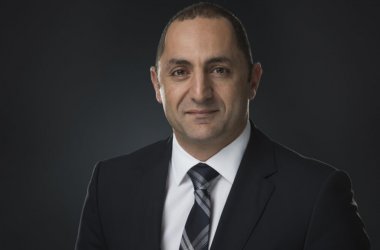
Charl Snyman, Vice-President and General Manager, HP Personal Systems Group, Europe, Middle East and Africa is responsible for product management, pricing and forecasting for desktops, notebooks, workstations, thin clients and retail solutions. A discussion on the dynamics of the European versus Middle East markets.
In your opinion what have been the primary internal reasons for HP reversing its decision to spin off PSG?
To be clear, we never reversed our decision. In August we announced that we are exploring strategic alternatives for HP’s Personal Systems Group. The decision was based on strategic, financial, and operational criteria and is in the best interest of HP’s shareholders and customers to retain the Personal Systems Group as part of HP
How much effort and what type of effort will need to be made by your team to rebuild customer confidence in the division, and rebuild commercial sales and inquiries?
Believe me, the last thing we want to do is create uncertainty for our customers. We’ve been in close contact with customers through this process. This is a competitive market, but we compete and we win every day. In fact, we believe that PSG held its leadership market share in calendar Q3 in the midst of this evaluation period. We are truly grateful to our millions of loyal customers who made us the leading PC company in the world, and we will continue to focus on delivering great products to them.
What is the primary difference in channel structure between the Middle East and Europe?
Snyman: In the mature markets like Western Europe, there is a much bigger and distinct go-to-market channel between corporate mid market and big retailers. In the emerging markets this is a little bit more greyish. In all the emerging markets like India and Vietnam it is the same trend and Italy, France, Greece were like this ten years ago.
What about the primary distributor arrangements across Europe?
Snyman: We have large in-country or national distributors like Ingram Micro and Techdata and they are structured exactly the same way we are. They have an European entity and a country entity.
Are you saying the reseller opportunity is around small and medium companies?
Snyman: There are so many small and medium companies being created every day. If somebody does not address them, who is going to address them? If we do not have a channel to address them, we have to do it directly like Dell has done or we are going to be eaten by our competition like Apples of the world in retail. Then you are marginalised by retail and we do not want to be marginalised.
The resellers in the region are looking for volume deals. Why would they want to target the small office and small businesses?
Snyman: For me the most important customer buying at the end is if there is value coming from the small reseller, giving the product as well as all the services around it to run a business. If the reseller can provide an end to end solution, then a non IT managed small office or small business looks at the reseller as his trusted advisor and there is a value and a discussion. For the small office, small business there is no discussion with the retailer. The retailer puts the product there and the customer walks out with it.
How does the opportunity look from a reseller perspective?
Snyman: I have the best end to end, middle product and services. I need a go to market reseller base that sells that value add to my customers with his contribution of course. If there is a gap in the go to market opportunity somebody has to address it.
With regard to enterprise and corporate business what is the structure followed in Europe?
Snyman: In Western Europe, my corporate business is 70% direct. It is not going through the channel anymore. The customer requests they deal directly with us.
If 70% of the corporate sale is direct, what is the role that tier one system integrators and VARs play?
Snyman: Whether a tier one partner is involved or not, for me that is independent. For me what is important is the relationship between me and the customer is direct. I hear directly from the customer on what is working and what is not working. There are a lot of factory and customer integration services which we frankly cannot do. In 80% of the cases the customer invoice comes to us. If a distributor or tier one partner is adding value in terms of cash, credit or stock they may also be activated in the transaction.
How do promotions and discounts work in Europe?
Snyman: A distributor works on fairly thin margins to create the huge revenue figure they have got. If the promotion is not easy it means extra costs or they do not do it at all. Our motto is to keep everything simple. We bring to market a programme as well as end to end products and services for them to execute on. Everything that is promotional we drive through the distribution channel because they have a joint interest.
In which market segment do the PSG products best fit in?
Snyman: We would like to put our products in the super retail, but ideally it is not a market where we would like to put our commercial products. Our commercial products are much more to do with end to end service, total cost of ownership, security and others.





